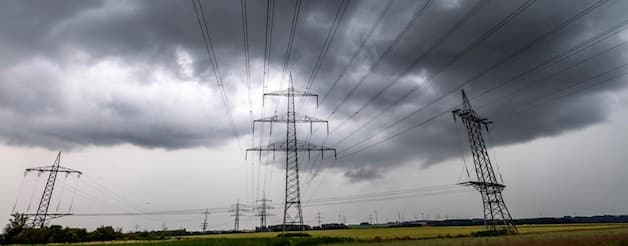It is now for the third year in a row extremely difficult to look forward to the new year. At the end of 2020, the author of these lines was certain that in 2021 the German economy would “turn on the turbo”. A year later it was no better: “Between gloom and a glimmer of hope” was the title of the prospect for 2022.
So now let’s look at 2023. One could make it easy on oneself and quote the Economics Minister: “It will be difficult in a different way,” said Robert Habeck in a newspaper interview. You can leave it as it is or take a closer look.
Maybe the good news first: the end of the world has been canceled for the time being, after the corona shock, the German economy coped surprisingly well with the consequences of the Russian attack on Ukraine, including the energy shock caused by the lack of gas supplies from the Siberian fields.
A comparatively mild winter so far, bulging gas storage facilities, full order books at companies, fewer delivery bottlenecks, falling prices for container freight and, last but not least, massive state aid have contributed to a significant easing of the economic crisis scenario.
A recession remains likely in the coming months. But it should be comparatively mild. The starting point is not that bad, after all there was a surprising plus in economic growth of 0.4 percent in the third quarter. And that despite a now double-digit inflation rate.
This seems to be a special feature of these overlapping crises (Corona, war in Ukraine): Above all, so-called domestic consumption, i.e. people’s desire to buy and travel, contributed to this growth.
During the Corona pandemic, Germans have accumulated an estimated 200 billion euros, which they are now spending (perhaps believing that times are not getting any better and that it is better to spend the money now than later).
Quite lavish collective bargaining agreements (e.g. metal industry: plus 8.5 percent and 3000 euros one-off tax-free, chemical industry 6.5 percent, or 9.4 percent for dockers on the North Sea coast) should have eased the concerns of the employees to some extent, the increased bills unable to pay for electricity and gas. And, of course, the federal government’s €200 billion package (“double boom”) is making an important contribution to the relief.
The gloomy forecasts of some augurs (Robert Habeck, for example, spoke of mass poverty and impoverishment as a result, the BASF boss saw the worst crisis coming since the Second World War) did not come true.
Instead, it has been shown how flexibly a market economy is able to react to shocks. The economy was resilient (see growth in the 3rd quarter) and the BASF Group is expecting a sales increase of 15 percent for the current year, including seven billion euros in profit before special items.
However, anyone who thinks everything is fine is wrong. Because the high bills for electricity and heat won’t come until 2023. And that’s only a small part of the concerns.
The fear of a new crash in the financial system is already growing among financial market professionals – namely among the real professionals and not among the usual prophets of a crash who only want to sell their books.
It is not a single risk, for example, the head of Germany at a major international bank told the Handelsblatt. It is the mixture of so many different dangers that he “have never experienced before”.
The main concern: the gigantic debt of many countries has continued to grow, according to figures from the International Banking Association from the summer to a total of 305 trillion dollars (that is 290 trillion euros – for comparison: the federal budget for 2023 is 476 billion euros).
China is also an uncertain cantonist if you want to look at further developments. The communist leadership has managed to correct obvious mistakes in its fight against Corona.
The effects on the domestic economy are nevertheless devastating, and global demand for products made in China has recently plummeted. For the German economy, which is still heavily dependent on China despite all efforts to position itself more broadly, these are rather poor prospects.
The continuing blatant lack of skilled workers, of which well over half a million are missing in Germany, is also causing the prospects to cloud over. In view of an increasingly aging population, this can only be solved through a targeted immigration policy.
It is to be hoped that the new law of the traffic light coalition will not be a similar non-starter as the law of the previous government from 2020.
Not enough? Then there is this: globalization is sputtering. Not only the export nation Germany has benefited greatly from global economic integration. This has also reduced poverty worldwide and brought a little more prosperity.
But at the latest when protective masks were no longer available in Germany during the pandemic and the warlord in the Kremlin no longer allowed gas to flow to Germany, it became clear that globalization not only brought benefits but also dependencies.
Since there is no improvement in sight in the foreseeable future, it is all the more important to rely on bilateral free trade agreements – and on the domestic market. And that is above all: Europe.
Author: Henrik Boehme
Presenter Cathy Hummels is currently on holiday in Dubai. There she met Lilly Becker quite by accident. Her husband Boris Becker has just filed a criminal complaint against the ex-wife of footballer Mats Hummels for defamation in public.
The death of “Foo Fighters” drummer Taylor Hawkins († 50) shook the music world. For a long time it was uncertain whether the band would ever be back on stage. Now the fans have every reason to be happy. The Foo Fighters are back!
The original of this article “The next year of crisis” comes from Deutsche Welle.
